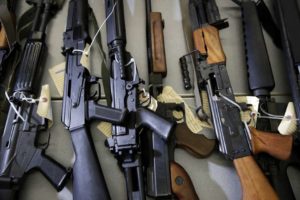California struggles to seize guns from people who shouldn’t have them

California has struggled to enforce a unique state law that allows officials to seize guns from people with criminal convictions or mental health problems, leaving firearms in the hands of thousands of people legally barred from owning them.
Legislators first took notice of the problem in 2013, after the gun massacre of 20 children and six adults at a Connecticut elementary school, and set aside $24 million to reinvigorate the firearms-seizure program. A representative for then-Attorney General Kamala Harris said eliminating a backlog that had grown to nearly 20,000 people was her “top priority” and estimated it could be done in three years.
Six years later, the state has been able to cut the list only in half. As of July, the backlog of people whose guns should be confiscated totaled about 9,000.
Justice Department officials note that they have reduced the size of the backlog each year since 2013, even as new offenses prohibiting gun ownership and surging firearms sales land more people on the list.
Attorney General Xavier Becerra called it “a phenomenally successful program, in terms of not only recouping weapons, but also never having an incident where anyone’s been hurt” during a gun seizure.
But the slow progress highlights the challenge of enforcing California’s tough firearms restrictions. In his January budget plan, Gov. Gavin Newsom — who has promised to “raise the bar” on gun control — proposed another multimillion-dollar funding increase to hire more special agents and support staff to cut the backlog. Read more >>>